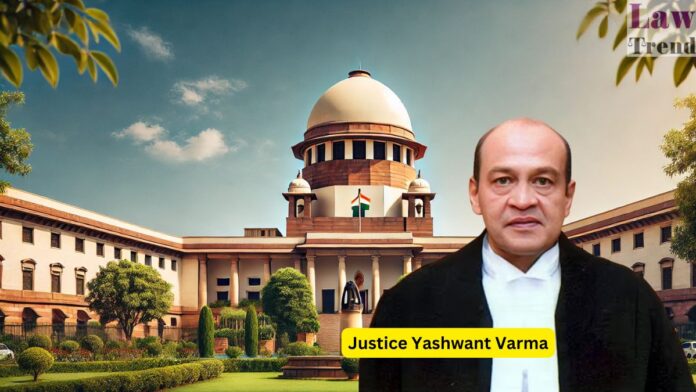A Supreme Court-appointed committee has made damning observations in its report on the high-profile cash recovery case involving Justice Yashwant Varma, establishing that only the judge and his family members had access to the store room where a large stash of unaccounted cash was found in March this year.
The report, accessed by India Today TV, reveals that the room in question, situated at Justice Varma’s official residence at 30, Tughlak Crescent, was under his “covert or active control,” refuting the judge’s earlier claims that the space was accessible to all.
Key Findings from the Report
- Exclusive Access: The committee concluded that the store room, where the burnt and unburnt currency notes were discovered, could only be accessed by Justice Varma and his immediate family members.
- Quantum and Condition of Cash: A witness cited in the report described stacks of currency notes—burnt and unburnt—lying from the entrance to the far wall, with some stacks reaching a height of nearly 1.5 feet.
- Involvement of Domestic Staff: The report notes that certain trusted domestic staff members were directly involved in the removal of the partially burnt cash on March 15, a crucial detail that underscores deliberate concealment attempts.
- Liquor Cabinet and Fire Risk: The committee also recorded the presence of a liquor cabinet next to an electrical switch box inside the store room, noting that the flammable contents likely exacerbated the fire incident that led to partial destruction of the cash.
- Unaccounted Wealth: The report unequivocally confirms that a significant amount of unaccounted cash was present in the judge’s residence—a fact the judge is now required to explain satisfactorily.
Justice Varma has denied any wrongdoing and previously claimed that the room where the cash was discovered was not under his exclusive control. However, the committee’s findings severely undermine this defense and bolster the case for initiating impeachment proceedings.
Implications for Judiciary
The discovery of cash and the detailed findings of the committee have added momentum to calls for accountability within the higher judiciary. According to legal experts, the nature of the findings could form the basis of impeachment under Article 124(4) of the Constitution, which deals with the removal of judges for proved misbehavior.
The matter has already triggered political ripples, with the Allahabad High Court Bar Association and other legal voices calling the government’s reported move to initiate impeachment proceedings a step towards restoring public faith in the judiciary.
Further developments are expected as the report is formally submitted to the apex court and parliamentary channels for possible action.




